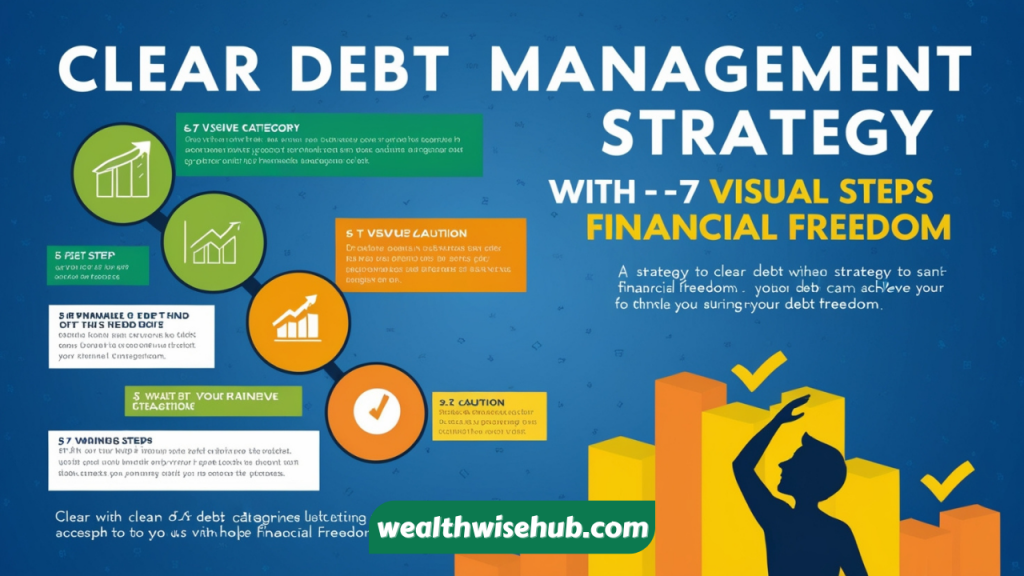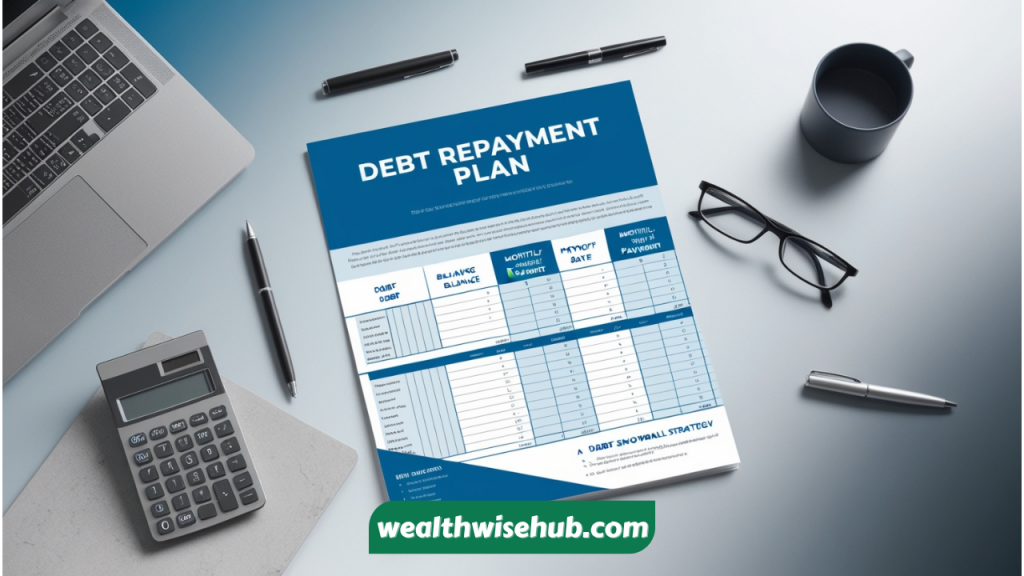
Learn proven strategies to get out of debt, take control of your finances, and build a more secure financial future. Practical, actionable advice for financial success.
Getting out of debt can feel overwhelming, especially when interest rates, late fees, and monthly bills start piling up. But achieving a debt-free life isn’t just possible—it’s within reach with the right strategies. Paying off debt isn’t only about financial freedom; it’s about creating a more secure future, reducing stress, and gaining more control over your choices.
This guide will show you effective, proven strategies to manage debt, from setting realistic goals to tackling high-interest debt first. Whether you’re dealing with credit card debt, student loans, or a mortgage, this article provides actionable tips to help you take back control of your finances and achieve long-term success. Read on to discover how you can start making meaningful progress toward a debt-free life and why taking small, consistent steps today can lead to lasting financial change.
Assess Your Financial Situation
The first step to getting out of debt is understanding the full picture of your finances. List all your debts, including credit cards, student loans, personal loans, and mortgages. Record each debt’s balance, interest rate, and monthly payment. This gives you a clear idea of where you stand and helps you identify which debts to tackle first. By assessing your financial situation honestly, you’ll also be able to set realistic goals and create an effective debt repayment plan.
Create a Budget and Stick to It
A budget is a crucial tool for debt management. To create an effective budget, track your monthly income and expenses, then allocate funds toward essential costs and debt repayment. Your budget should prioritize debt reduction over non-essential spending. Consider using budgeting tools or apps that can help you manage your finances and monitor your progress. Remember, a budget isn’t a restriction—it’s a plan that gives you control over your money.
Focus on High-Interest Debt First
When dealing with multiple debts, the debt avalanche method can be a highly effective strategy. With this approach, you focus on paying off high-interest debt first while making minimum payments on others. By targeting high-interest balances, you’ll save more money in the long run and reduce the time needed to achieve financial freedom. Alternatively, if you prefer the quick wins of eliminating small balances first, consider the debt snowball method.

Increase Your Monthly Payments
If you’re only making minimum payments, it can take years to become debt-free. Boosting your monthly payments, even by a small amount, accelerates your progress and saves you from unnecessary interest charges. Consider cutting back on non-essential spending and using that extra cash to pay down debt faster. You might also look for side gigs or part-time work to supplement your income, which can help you make larger payments and reach debt freedom sooner.
Avoid Accumulating New Debt
One of the biggest challenges in debt management is resisting the urge to accumulate more debt. Avoid making new purchases on credit cards, and consider using cash or debit for essential purchases. Limit unnecessary spending, and focus on paying down what you already owe. By being intentional with your spending, you can avoid debt traps and keep your finances on track.
Consider Debt Consolidation
If you have multiple high-interest debts, debt consolidation can simplify your payments and reduce interest costs. With debt consolidation, you combine all your debts into a single loan with a lower interest rate, making it easier to manage. Explore personal loans or balance transfer credit cards with zero or low introductory rates. Be cautious, though, as debt consolidation requires discipline. Avoid using your credit cards again after consolidating to prevent falling back into debt.
Seek Professional Help if Needed
Sometimes, getting out of debt can feel overwhelming. Financial counselors or debt relief services can offer guidance on the best approach for your unique situation. A certified credit counselor can help you create a personalized debt repayment plan and offer resources to improve your financial health. Consider reaching out for professional assistance if you’re struggling to make progress on your own.

Conclusion:
Getting out of debt requires commitment, planning, and perseverance. You can work toward financial freedom by assessing your finances, creating a realistic budget, focusing on high-interest debt, and making consistent payments. The journey may be challenging, but with dedication, you’ll achieve a secure and debt-free future.
The path to debt freedom may feel daunting, but each step brings you closer to financial security and peace of mind. Start implementing these strategies today, and remember, you’re not alone in this journey. Have your own tips or success stories? Please share them in the comments! Let’s encourage one another on the path to financial freedom, and don’t forget to share this article with others who may find it helpful.
FAQs:
1: What are the best strategies for getting out of debt?
The best strategies include the Debt Snowball (paying off the smallest debts first) or the Debt Avalanche (paying off the highest interest debts first). Both approaches can help you reduce debt efficiently.
2: How long will it take to pay off my debt?
The time it takes to get out of debt depends on how much you owe and how much you’re able to pay each month. You can speed up the process by cutting expenses and using windfalls like tax refunds or bonuses to make extra payments.
3: Should I prioritize paying off debt or saving for the future?
It’s important to strike a balance. Focus on paying off high-interest debt first, while also setting aside some money for an emergency fund. Once your high-interest debts are paid off, you can redirect that money toward saving and investing.
4: Can I negotiate with creditors to reduce my debt?
Yes, you can negotiate with creditors to lower your interest rates, reduce your total balance, or set up more manageable payment terms. It’s worth asking for a lower rate, especially if you’re a loyal customer.
5: Is debt consolidation a good option for me?
Debt consolidation can be a good option if it helps you secure a lower interest rate and simplifies your payments. Be cautious of fees, and make sure you’re committed to not accumulating new debt while you pay off the consolidated loan.
Recommended Reading:
📖 The Total Money Makeover by Dave Ramsey
A comprehensive guide that provides step-by-step instructions for eliminating debt, building wealth, and achieving financial peace.
📖 Debt-Free Forever: Take Control of Your Money and Your Life by Gail Vaz-Oxlade
This book offers practical advice on creating a debt repayment plan, staying on track, and managing money effectively to become debt-free.
📖 Smart Couples Finish Rich by David Bach
Focuses on creating a financial plan with your partner, including strategies for getting out of debt and building wealth together.
Get Financial Advice Daily
Ready to take control of your financial future? 🌟 This online opportunity is the perfect way to start earning extra cash. Discover more here: Learn more